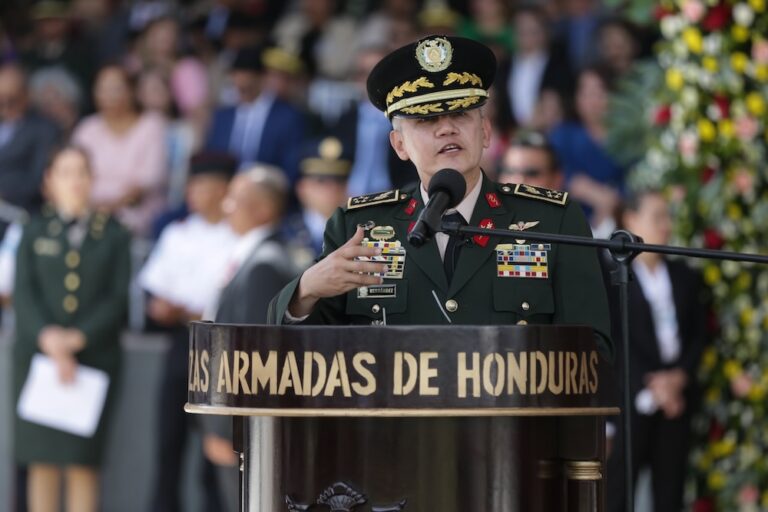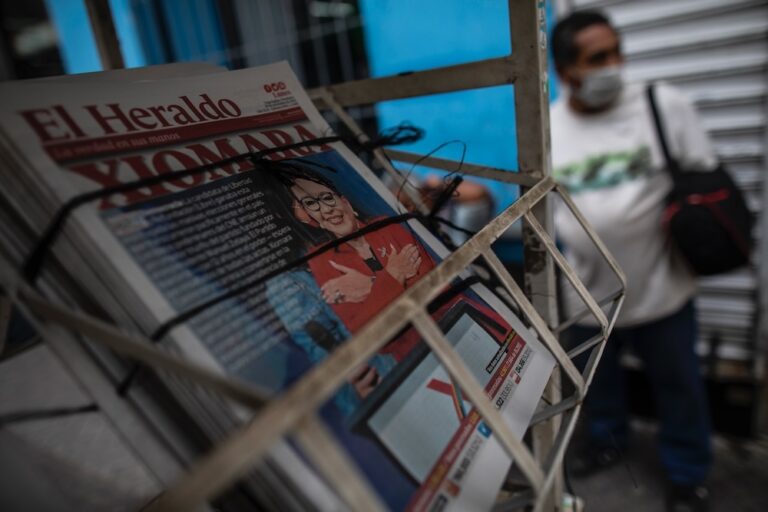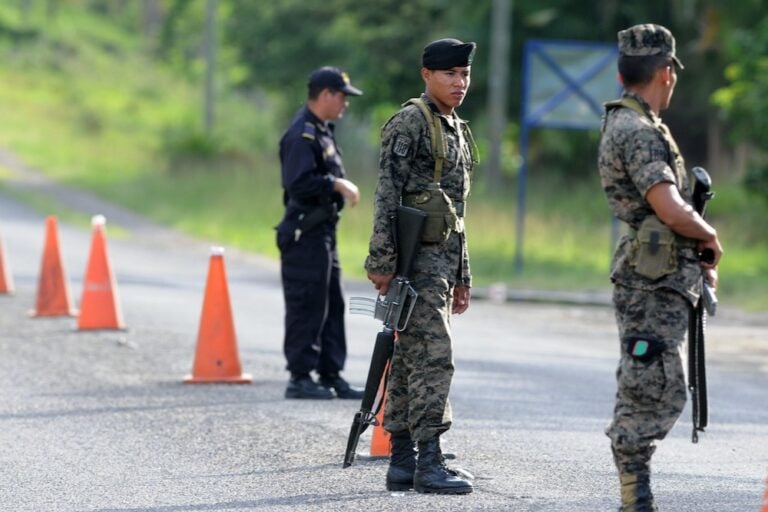IFEX-ALC calls on the Honduran government to uphold the commitments it made regarding the fight against impunity and the defense of the right to free expression in the country.
(IFEX-ALC/IFEX) – 11 March 2011 – The free expression situation is still deteriorating in Honduras, even though the Government made certain commitments before the United Nations Human Rights Council in the Universal Periodic Review (UPR) process held on 4 November 2010. During the UPR, the government pledged to investigate attacks and murders of journalists, and legally recognise community-based media outlets.
Ten journalists were violently murdered in 2010, with one of them being killed after the UPR in November. To date none of the cases have been thoroughly investigated. Nine journalists were murdered between February and November 2010. The tenth was Henry Suazo, who was killed in La Ceiba on 28 December 2010, the month after the UPR. At the same time, certain precautionary measures requested by the Inter American Commission on Human Rights (IACHR) have still not been fully implemented. As a result, impunity prevails and journalists continue to face a great deal of risk while carrying out their profession.
One noteworthy result of the UPR process was the Honduran government’s promise that it would amend its telecommunications legislation to bring it in line with “international human rights agreements and standards” regarding the legal recognition of community-based media outlets. Despite this commitment, the government has failed to address this issue, and on the contrary, attacks on media personnel are on the increase, with government officials being responsible for some of the incidents. This prompted the Office of the Special Rapporteur for Freedom of Expression of the IACHR (see http://www.cidh.oas.org/relatoria/showarticle.asp?artID=831&lID=1) and the United Nations Special Rapporteur on the promotion and protection of the right to freedom of opinion and expression to issue communiqués expressing concern over the freedom of expression situation in the country. Nevertheless, to date there has been no response from the government.
Intense international lobbying in the lead up to and during the UPR session on Honduras was carried out by the International Freedom of Expression Exchange – Latin America and Caribbean (IFEX-ALC), an alliance of 17 IFEX members in Latin America and the Caribbean. As a result, the Honduran authorities vowed to increase their efforts and dedicate more resources to the investigation of the murders and other attacks on journalists. Despite these promises, however, there has been little concrete progress since the UPR process in Geneva. On the contrary, the amount of money promised to the Public Prosecutor’s Office for the investigation of human rights violations has been cut in half and it has not received any of the funds. Rather than concrete action by the state to promote human rights, we see that human rights and human rights defenders are under attack. This is exhibited by the cases of Leo Valladares, former National Human Rights Commissioner, and social issues researcher Alvaro Cálix, both of whom have been forced into exile, the former on 7 March 2011 and the latter at the end of February 2011.
In light of the fact that the state has failed to act on the promises it made in Geneva, and in anticipation of the fact that Honduras will be appearing before the UPR Working Group on 17 March, IFEX-ALC reiterates its demands for an end to attacks on journalists and the harassment and legal persecution of community-based media outlets. The alliance also urges the government to promptly investigate freedom of expression violations in Honduras and adopt effective measures to prevent further violations of this right being committed. IFEX-ALC also calls on the Honduran government to uphold the commitments it made regarding the fight against impunity and the defense of the right to free expression in the country.


